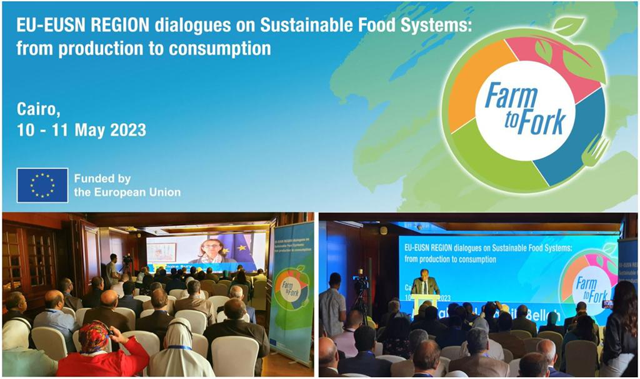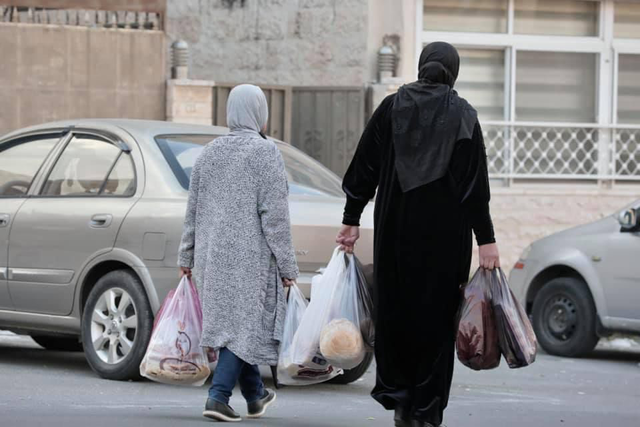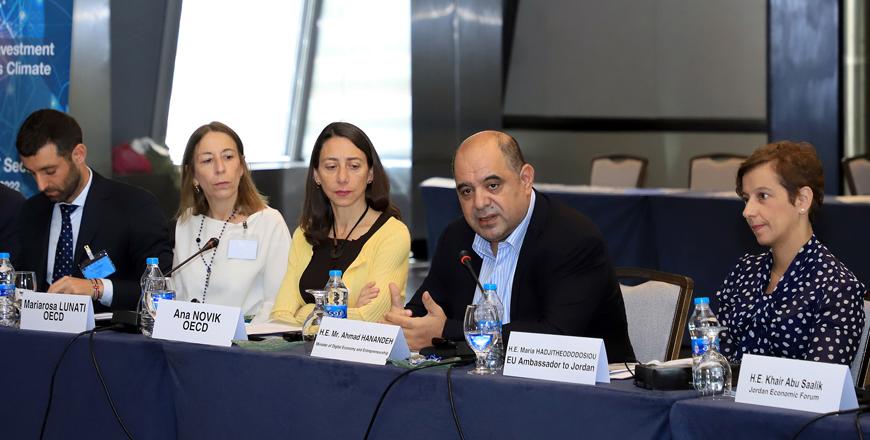You are here
EU, Southern Neighbourhood policy makers discuss strategies to combat looming global food, climate crisis
By JT - May 21,2023 - Last updated at May 21,2023

AMMAN — Stakeholders from Egypt, Algeria, Tunisia, Libya, Lebanon and Jordan have expressed similar concerns regarding environmental degradation caused by agriculture and farming as well issues of food security, healthy nutrition and food waste reduction. All agreed that holistic and long term actions must be put in place, according to an EU statement.
The talks between the EU and six countries in Middle East-North Africa region were held at the Hilton Zamalek and online, as part of EU-funded workshop series supporting the “Farm to Fork” (F2F) Strategy put in place by the EU in the context of the wider “Green Deal”.
The COVID-19 pandemic, the Ukraine crisis and ongoing extreme weather conditions caused by climate change, have disrupted global food supply chains and communities around the world, causing a risk of food insecurity and food related health threats such as hunger or obesity.
In addition, current food production, transport and processing methods are one of the largest contributors to global warming with 21-37 per cent of greenhouse gas emissions attributed to food chains, the statement said.
Opening the workshop, Claire Bury, Deputy Director General for Directorate-General for Food Sustainability, EU Commission, said: “In Europe, our citizens continue to express their concerns about the climate and biodiversity loss. Their recommendations support the sustainability policies we are developing, and the cooperative work we want to develop set out the way forward.”
Koen Van Dyck, EC DG SANTE Head of Unit A5, emphasised that “COVID-19 was one pandemic but there will be others, and it’s important that food systems can better react and be better prepared when another pandemic comes.”
“There is huge potential for transformation in the region if collaboration and alignment on a roadmap is set,” urged Yahia Al Wathik-Bellah, First Undersecretary of the Ministry of Trade and Industry of Egypt.
This workshop allowed dialogues between the EU and five neighbouring countries of Egypt — Algeria, Tunisia, Libya, Lebanon and Jordan — in order to exchange views regarding soil health, sustainable use of fertilisers and innovation; sustainable use of pesticides; as well as food loss, waste and sustainable consumption.
“The most severe impact of global warming will be felt in the Mediterranean and Atlantic regions. We cannot have a green Europe at the expense of Africa,” said Adel Al Beltagy, ex-minister of Agriculture and Land Reclamation of Egypt.
Asserting that Jordan has the second highest share of refugees per capita in the world, Sa’eb Khresat, former president of the Jordan University for Science and Technology, insisted that such fact “puts unprecedented pressure on local natural resources — including water.”
“There needs to be better use of water resources and we should work on solving water imbalances in desert zones,” emphasised Yacine Hammouni, agriculture engineer at the Ministry of Agriculture and Rural Development of Algeria.
As a recommendation, “this is a difficult time but it brings opportunities: we need to cooperate more with the EU and neighbouring countries in the region to maximise food production with less environmental impact,” said Abubaker Hamad Almansori, chairman of Food Security Strategy Programme, and former Minister of Agriculture of Libya.
Mentioning Tunisia among other concerned countries, “developing a sustainable agrifood national system is a huge challenge, and food loss is an entry point for looking at the system as a whole", said Jennifer Smolak, Value Chain Specialist, FAO Regional Office for the Near East and North Africa.
A complementary message was echoed by Ramy Boujawdeh, COO of Berytech from Lebanon: "People should be able to keep living in rural areas so we have to make sure the economy works for them, by producing better and more sustainably."
Cristina Laso Sanz, Deputy Head of Unit A5 (Bilateral International Relations) at EC DG SANTE, closed the workshop by reassuring that “we agree there is not a one-size-fits-all solution: diversity of organisations and value chains, diversity of solutions, technology and nature-based solutions are key to succeeding.”
Related Articles
AMMAN — Representatives of countries in the Near East and North Africa region are gathering in Amman this week, for a four-day workshop orga
AMMAN – The World Bank’s (WB) recent reports showed that Jordan is the least Arab country affected by food price inflation that hit 3.5 per
AMMAN — Minister of Digital Economy and Entrepreneurship Ahmad Hanandeh on Thursday stressed the importance of public-private sectors dialog



















